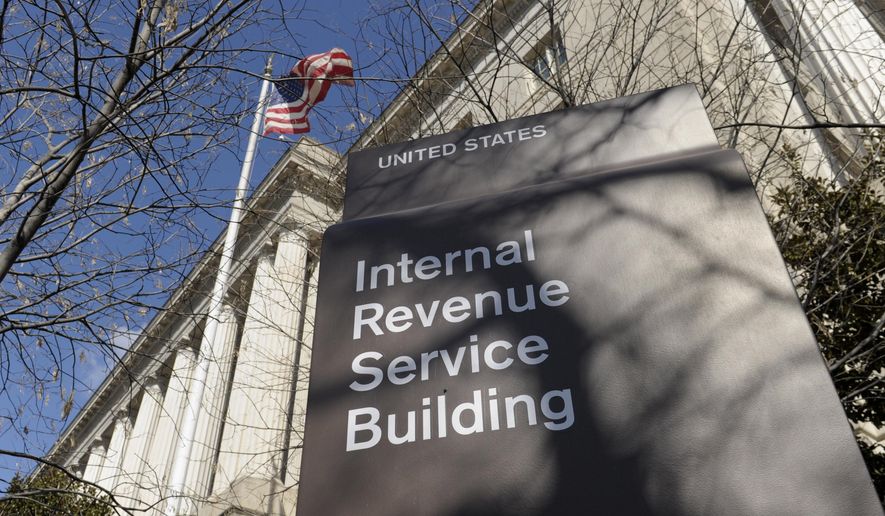A New Hampshire man is suing the IRS, claiming the feds violated his constitutional rights by obtaining his financial information from cryptocurrency databases.
James Harper received a letter from the IRS in 2019 suggesting one or more of his virtual currency accounts may not have properly been reported for tax purposes.
The IRS did not seek money at the time from Mr. Harper, but warned him that there may be possible “enforcement activity in the future.”
Roughly 10,000 taxpayers received the same IRS letter.
In his federal court filing this month, Mr. Harper said he has paid his taxes and any capital gains.
He accuses the IRS of violating his contracts between him and at least one of his digital currency accounts. The contracts guarantee the companies will “provide robust protections” to private financial data, according to the complaint.
Mr. Harper has accounts with Abra, Coinbase and Uphold. According to court documents, Uphold said in an affidavit it did not turn over Mr. Harper’s financial information to the government.
“Mr. Harper challenges IRS’s information-gathering practices as violating the Fourth and Fifth Amendments to the United States Constitution,” read the 43-page lawsuit filed with the U.S. 1st Circuit Court of Appeals.
Mr. Harper wants the court to order the IRS to erase his private financial data it obtained, arguing the information was gathered unlawfully.
The district court ruled against Mr. Harper in March, reasoning sovereign immunity bars that type of lawsuit against the United States.
In the judge’s order, he cited a 2017 case in which the court held Coinbase was required to respond to an IRS summons.
Caleb Kruckenberg, a lawyer with New Civil Liberties Alliance representing Mr. Harper, said the Supreme Court has held that the IRS can’t block lawsuits challenging the legality of its actions.
“Unfortunately, that decision came out after the district court allowed the IRS to abuse the law in just that way. According to the Supreme Court, though, this case is a ’cinch,’ and the 1st Circuit should swiftly reinstate this lawsuit,” Mr. Kruckenberg said.
Adi Dynar, a lawyer litigating Mr. Harper’s case, said what the IRS did to his client was “unprecedented.”
“It apparently obtained the private financial information of 10,000-odd digital currency users, not from the users themselves, but by strongarming at least one digital-currency exchange. Tellingly, IRS is now asking for congressional authorization after the fact, which implies that permission was lacking when IRS intruded on taxpayers’ privacy,” he said.
A spokesperson from the IRS said the agency will not comment on pending litigation.
Drew Hinkes, an attorney with K&L Gates and professor at NYU School of Law, said courts have rejected arguments over privacy concerns, pointing to a ruling in 2020 out of the U.S. 5th Circuit Court of Appeals that held there’s “no reasonable expectation of privacy in records of cryptocurrency transactions that are viewable on a public blockchain or records that are provided to regulated third parties.”
“Also, multiple courts have allowed the IRS to serve and receive taxpayer data by way of John Doe summonses on regulated intermediaries serving the crypto industry,” Mr. Hinkes said.
• Alex Swoyer can be reached at aswoyer@washingtontimes.com.




Please read our comment policy before commenting.